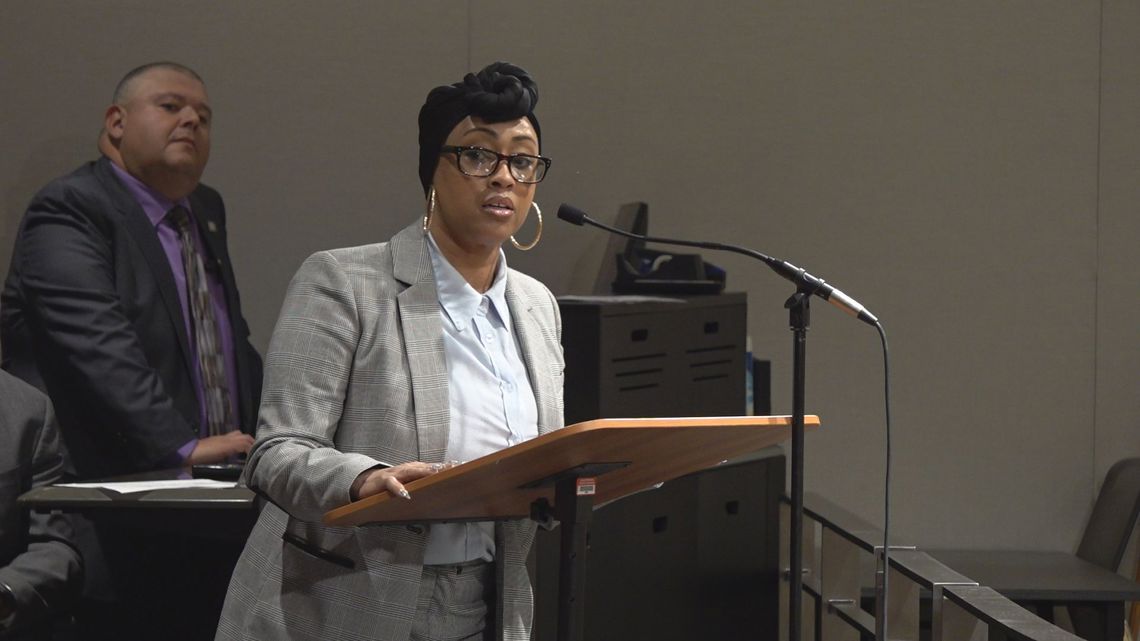‘End Slavery in California Act’ clears key hurdle
An effort is underway to change California's constitution, which currently allows involuntary servitude as a punishment for crime. The 'End Slavery in California Act' is being pushed to change California's constitution, which currently allows involuntary servitude as a punishment for crime. The current definition of slavery includes forced labor compelled by the use of physical or legal coercion. Advocates like Jamilia Land, co-director of state operations for the Abolish Slavery National Network and co-founder of the Anti-Violence Safety and Accountability Project, argue that this should be changed. The bill, ACA 8, would require California voters to vote on an amendment to the state constitution stating "Slavery in any form is prohibited". Proponents argue that working for basic operations of the prison should be mandatory for inmates, as long as hygiene and safety are covered and taken care of, and Glazer supports this bill.

نشرت : قبل عام بواسطة Becca Habegger في Politics
An effort is underway to change California's constitution, which currently allows involuntary servitude as a punishment for crime.
Example video title will go here for this video
Example video title will go here for this video
“Slavery, at its core, is forced labor to benefit another,” said John Vasquez, who was 16 when he was sentenced to more than 30 years behind bars. “I ended up serving 25 years of that, and I’ve been home for a little over five years now.”
It’s that last part – “except to punish crime” – that advocates like Jamilia Land want to change. She is co-director of state operations for the Abolish Slavery National Network, as well as co-founder of the Anti-Violence Safety and Accountability Project.
“Incarcerated people in the state of California make all of the office furniture that is inside of this building,” Land said, gesturing around her at the Capitol Swing Building, where lawmakers’ offices are located. “They make the road signs… These glasses that I am wearing, I got through the UC Berkeley optometry department. I asked them to give me the sheet of where it came from: CALPIA. The glasses on my face were produced inside of a California State Prison.”
Ultimately, Proponents of ACA 8 want California voters to decide whether to amend the state constitution to say, “Slavery in any form is prohibited. As used in this section, slavery includes forced labor compelled by the use or threat of physical or legal coercion.”
“Things that go to the basic operations of the prison, I think they should be required to work,” Glazer told ABC10 Tuesday. “I don’t support penalties against inmates if they decline to work… And, by the way, for some of the jobs in prison, they pay too little.”
“As long as it defines what it means for an inmate in the prisons: what would be required and what would not be required. And as long as the basics in a prison — like hygiene and safety and food service — as long as those things are covered and taken care of, I think we can find a middle ground in her bill,” he said, adding that he is working with the author of the bill.
“I want to eliminate slavery and involuntary servitude from our constitution, but we can’t have a situation where the inmates are running the institution, that they can go on strike and stop food from being cooked and things from being cleaned," Glazer said. "So we have to find the right balance in this legislation.”
“The assumption that prisons will stop running if you don’t force people to work — is simply a myth,” Vasquez said. “I was on a job waiting list for over three years, just waiting to get a job. And I wanted to work because I wanted something to do. Most people inside, they just want something to do to get off their cell.”
المواضيع: Social-ESG
